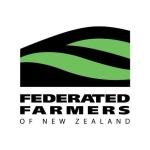The Worrying Cost of Carbon
The President of Federated Farmers, Charlie Pedersen says New Zealand farmers are concerned about their ability to farm in a sensible and sustainable way.
He told a forum of the Australian Farm Institute, in Queensland today that on the one hand farmers are being asked to produce more food for an increasing world population, but on the other hand are facing significant restrictions imposed on them by both central and local government.
“By 2030, the population of the world will have risen from 6 billion to 8.3 billion and at the same time standards of living will rise in many countries prompting demand for more and better food. But environmental lobby groups are seeking to have rules introduced that would unnecessarily restrict the intensification of land use and mean that farmers will be unable to meet increasing demand for food in the future, said Mr Pedersen.
“The detail or lack of it in the Emissions Trading Scheme (ETS) which is part of the Climate Change Bill currently before the New Zealand Parliament is also of concern to food producers. I have seen figures on the cost of carbon credits which, in the present situation, would put a significant number of food producers in New Zealand out of business. It would also mean more imports of food and an overall lowering of the standard of living in New Zealand. People seem to forget that the primary sector earns 47 percent of export returns and around 40 percent of New Zealanders are employed the food industry, Mr Pedersen said.
He says the ETS process is being rushed through by the government and he wants the process slowed down to ensure that it doesn’t have a significant impact on food producers.
“I never envisaged that in my lifetime as a farmer I would be spending time trading in carbon credits and worrying about the myriad of threats to farming from non-producers. I always thought that looking after the cows, managing adverse events and watching overseas market trends would be hard enough,” said Mr Pedersen.
